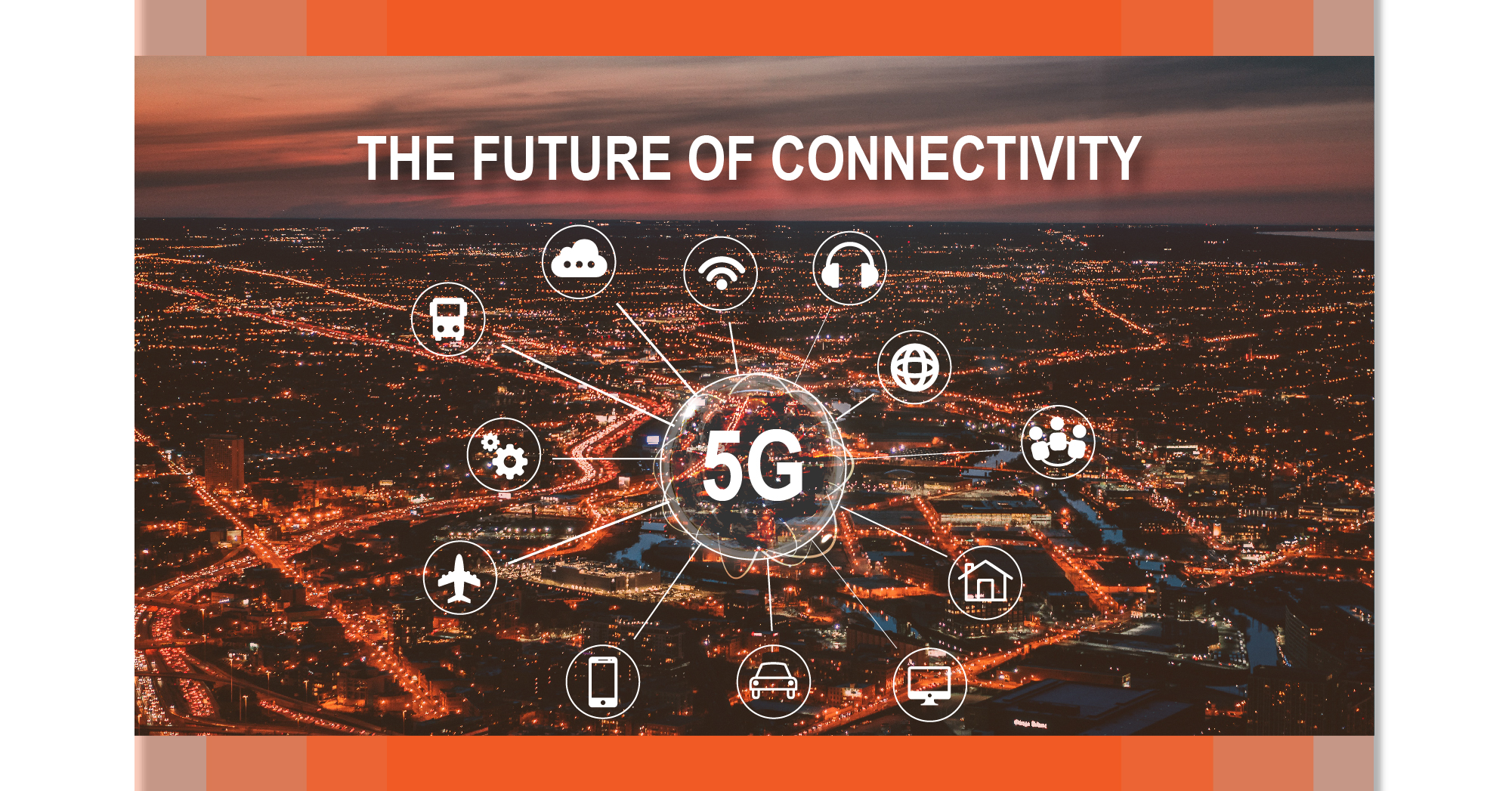- About
- Solutions
- Business Applications
- Digital Transformation Solutions
- Information Technology Systems
- Data Center Solutions
- Extra Low Voltage Systems
- Structured Cabling Systems
- View All Solutions
- News & Events
- Careers
- Contact Us
english عربيnavigationBlog
December 1, 2023
5G Technology: Transforming the ICT Industry and Beyond.
5G technology has a revolutionary impact on the ICT industry and beyond. Its impact can be seen in various areas, including mobile broadband, fixed wireless access (FWA), the Internet of Things (IoT), cloud computing, edge computing, and different industries. Let's delve into the details of its impact.
In the Internet of Things (IoT) realm, 5G plays a pivotal role. Its ability to enable Massive Machine-Type Communication (mMTC) allows billions of devices to be connected in real time. This opens endless possibilities for new IoT applications. For example, smart homes powered by 5G can utilize sensors and actuators to monitor and control various aspects, such as temperature, lighting, security systems, and appliances. In smart cities, 5G can be utilized to develop applications that improve traffic flow, manage energy consumption, and provide real-time information to citizens. Connected industries, such as smart factories and precision agriculture, can leverage 5G to enhance efficiency and productivity.
Cloud computing services also greatly benefit from 5G's speed and reliability. 5G delivers cloud computing services to mobile devices at exceptional speeds, making it possible to develop innovative applications such as Augmented Reality (AR) and Virtual Reality (VR). AR applications overlay digital information onto the real world, providing users with a more immersive experience, while VR applications transport users to virtual worlds. 5G's bandwidth and low latency ensure smooth and lag-free experiences in both AR and VR applications.
Moreover, 5G empowers edge computing, which brings computing and storage resources closer to the network edge. This reduces latency and enhances the performance of real-time applications. For instance, in self-driving cars, 5G-enabled vehicles can leverage edge computing to process sensor data and make instant decisions, resulting in safer and more reliable autonomous driving experiences. Similarly, in remote surgery, 5G combined with edge computing can reduce the latency of video feeds and control signals, enabling surgeons to operate on patients remotely with improved responsiveness and immersion.

5G is transforming connectivity, IoT, and various industries by enabling new and innovative applications and services. Smart factories can monitor and control production processes in real time, optimizing efficiency and productivity. Precision agriculture applications can utilize 5G's capabilities to monitor soil conditions and crop health, leading to optimized irrigation and fertilization and increased yields. Telemedicine services powered by 5G enable remote consultations between patients and doctors, providing access to healthcare services in remote areas. Self-driving cars heavily rely on 5G's low latency and high bandwidth to operate safely. In comparison, smart traffic management systems use 5G to monitor traffic conditions and adjust real-time signals, reducing congestion and improving traffic flow. Regarding mobile broadband services, 5G's peak speeds of up to 10 Gbps provide significantly faster connectivity than previous cellular technologies. This enables high-definition video streaming in real-time, allowing users to enjoy seamless video games and movie streaming without buffering or lag. Additionally, the low latency of 5G supports low-latency online gaming, creating a more immersive and realistic gaming experience. Moreover, 5G facilitates rapid download of large files, such as movies and games, in seconds.
Another significant impact of 5G is delivering Fixed Wireless Access (FWA) services. With 5G, homes and businesses can receive reliable, high-speed internet without traditional wired connections. This is particularly beneficial in areas where conventional broadband services are not available or affordable.
In conclusion,5G technology significantly impacts the ICT industry and various industries. Its network capabilities enable the creation of new applications and services, enhancing the performance of existing ones and transforming the way we interact with the world around us. The widespread adoption of 5G is set to bring about a new era of connectivity and possibilities.
related news
Blog
03 November 2023
The New Era of the F&B Industry
Digital technologies have undeniably revolutionized the Food and Beverage (F&B) industry, reshaping the way businesses operate and interact with customers.
read full articleBlog
26 October 2023
Green IT
Green IT has emerged as a critical imperative for businesses and organizations worldwide in an era of rapid technological advancement.
read full articleBlog
12 October 2023
How Hotel Mobile Check-In Improving Guest Experiences
hotel mobile check-in stands out as a remarkable transformation that streamlines the check-in process, empowers guests with greater control.
read full articleBlog
10 October 2023
Leveraging Artificial Intelligence for Better Healthcare Outcomes
Integrating AI technologies in the healthcare sector holds immense promise for improving patient outcomes.
read full articleBlog
15 June 2022
Artificial Intelligence Technology
Artificial intelligence technology has come a long way. In this article, we'll explore the pros and cons of AI.
read full article